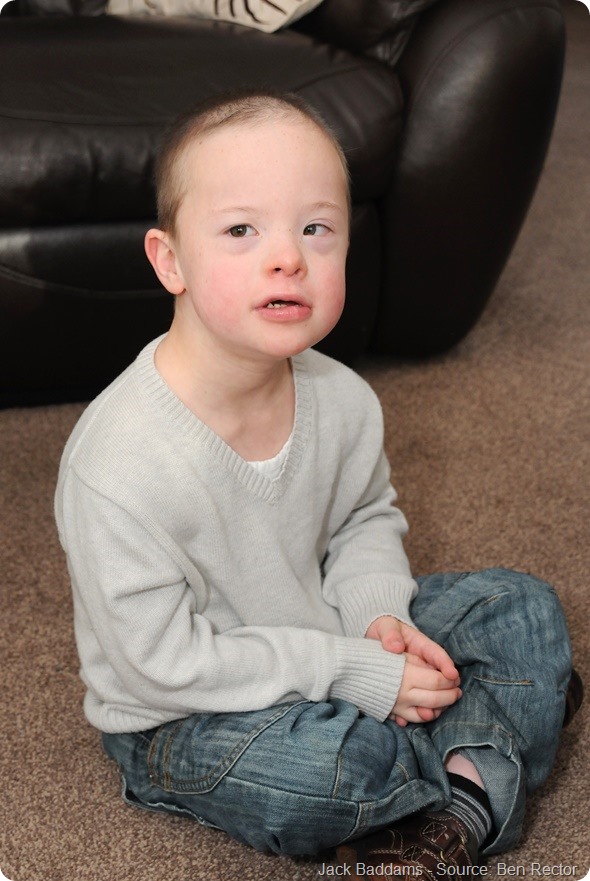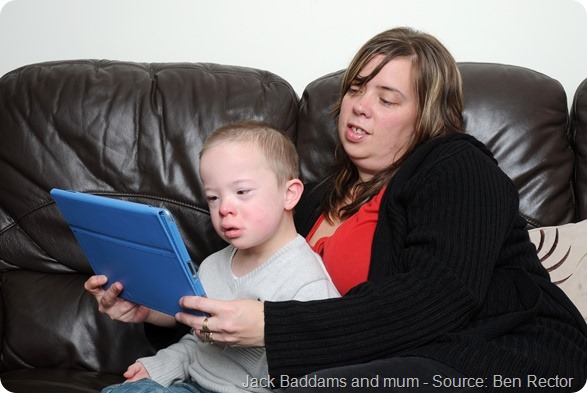Mar 15 2013
Researchers at the University of Southampton are planning to investigate tests for a breathing disorder that affects babies and children who have Down syndrome while they sleep. They aim to provide the missing evidence so that doctors can introduce affordable and simple routine screening.
The project, led by sleep specialist Dr Catherine Hill, is funded by children’s charity Action Medical Research. It is hoped that screening will improve diagnosis so more children can benefit from early treatment for the condition that can have serious consequences.

Around 750 babies are born with Down syndrome each year in the UK1, estimates suggest up to three quarters of them will suffer from a breathing disorder called obstructive sleep apnoea (OSA). OSA disturbs sleep and can lead to problems with growth, learning and behaviour.2-5 The condition can also put extra strain on the hearts of children with Down syndrome, around 50 per cent of whom are born with heart problems.6
Typically the children with OSA stop breathing for a few seconds at a time during their sleep. This happens several times a night and when breathing starts again, the children may gulp for air. Each time this happens oxygen levels in their blood fall, which can be harmful.
“If untreated, OSA can affect the children’s health and their quality of life. At the most extreme, children may fail to grow as quickly as expected. More commonly, OSA affects children’s ability to pay attention, their learning, behaviour and school performance,” says Dr Hill.

“Unfortunately, these effects may be overlooked and assumed to part of living with Down syndrome.”
Two screening tests will be evaluated to see if they can be used alone, or in combination, to identify children with Down syndrome who have OSA. These tests are a sleep questionnaire and pulse oximeters (small devices that measure oxygen levels in the blood, which can be attached to children’s toe during sleep).
Hospitals in Southampton, Sheffield and London plan to recruit a total of 180 children with Down syndrome aged six months to six years to take part in this study.
Source: action.org.uk
References
-
Down’s syndrome association. General FAQs. http://www.downs-syndrome.org.uk/about-us/key-facts-and-faqs/faqs/general-faqs.html Website accessed 7 September 2012.
-
Marcus C, et al. Obstructive sleep apnea in children with Down syndrome. Pediatrics 1991; 88:132.
-
Dyken ME, et al. Prospective polysomnographic analysis of obstructive sleep apnea in Down syndrome. Arch Pediatr Adol Med 2003; 157:655-60.
-
de Miguel-Diez J, et al. Prevalence of sleep-disordered breathing in children with Down syndrome: polygraphic findings in 108 children. Sleep 2003; 26:1006-9.
-
Working party on sleep physiology and respiratory control disorders in childhood. Standards for services for children with disorders of sleep physiology. Report. September 2009. http://www.woscor.scot.nhs.uk/documents/RCPCH%20Sleep%20Guidelines.pdf Website accessed 18 September 2012.
-
Richard Urbano (9 September 2010). Health Issues Among Persons With Down Syndrome. Academic Press. p. 169. ISBN 978-0-12-374477-7. Retrieved 10 April 2012.